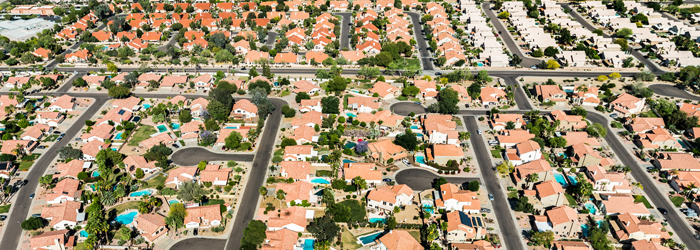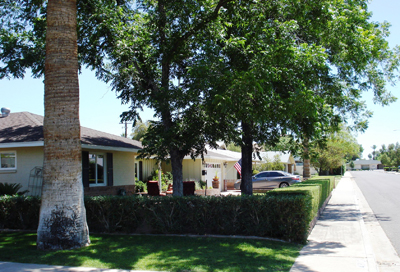HOA Managed Communities: 5 Things You Need-to-Know
 11 January 2017
11 January 2017 

Homeowner Associaations (HOAs) in Arizona often make news, but in part that’s because our state has 8,800 of them with thousands and thousands of us living in them. There are not as many as in California or Florida, but Arizona is right up there among states with planned developments and condo projects governed by HOAs.
Homeowners or condo associations are created by developers when they build a project. Builders set up the covenants, conditions and restrictions (the CC&Rs), and until the development is almost done, the builder runs the HOA, according to Linda Lang, president and CEO of the Arizona Association of Community Managers. Then the developer turns everything over to homeowners who pick a board to run the association and sometimes hire a property manager to run the association.
Some homeowners complain about rules set by association boards, but others perceive that HOAs improve property values, cleanliness and safety. Many HOAs have gates; sometimes gates are manned.
 However, in the past, we have seen HOAs clash with residents over issues like how tall flag poles can be, whether solar panels can be installed on roofs, or who can park cars on the streets overnight.
However, in the past, we have seen HOAs clash with residents over issues like how tall flag poles can be, whether solar panels can be installed on roofs, or who can park cars on the streets overnight.
So, if you’ve fallen in love with a house in an HOA community, you might take a little time to find out more about the situation:
1 | Investigate what the HOA fees are; ask about special assessments.
If you read the documents carefully, you’ll know what you will pay monthly or quarterly. Many HOAs require paying into a capital improvement fund for big replacements – like a leaky clubhouse roof. But you can face assessments if the fund can’t handle things like replacing a washed-out road or rebuilding sewers. When you sign closing documents for your new home, you agree to all fees in advance. A lien can be filed against your house if you fail to pay. Research the HOA’s financial history, too, to find out about assessments.
2 | Ask what the HOA maintains.
In many communities, amenities like gates, fitness centers, golf courses and swimming pools are cared for by the HOA. But some HOAs only maintain landscaping of common properties and painting and repairing things like common walls. If the development is gated, then the HOA and not the city or county will maintain and pay for the roads.
3 | Read all the rules and find out who enforces them.
Be sure to read the CC&Rs carefully; they’re the basic rules set by the developer. But read all rules that the homeowners association may have set later, like no parking RVs in the subdivision or keeping the garbage can hidden in your garage or no basketball hoops in front of the house. You could be fined for violating those rules. Make sure you can live with the nitty-gritty details.
4 | Find out if the association is professionally managed.
Although a small development doesn’t necessarily need a fulltime, on-site manager, bigger developments do. What’s the experience and certification of the managers? Remember these people will be handling all the money that comes in each month. They also must follow all rules set by the state, as well as the HOA.
5 | You can be part of the solution to future issues.
If you do buy that house, and things don’t go the way you want in your HOA, you don’t have to move. You could run for the HOA board and change the situation. In fact, many HOAs have a tough time finding good and enthusiastic candidates for boards.
In conclusion, when buying in an HOA community, don’t take the designation lightly. Do your research and you won’t encounter big surprises; you’ll be happier in the long run.
###
RELATED CONTENT:
- AACM's Community Management Impact Study
- Find trusted Arizona contractors and home improvement service providers
Print this page
recent post
- Duck, Duck, Duct! How Often Should Ductwork Be Cleaned?
- Vinyl vs. Fiberglass Windows: Which Is The Better Choice Of Replacement Window?
- We May Be The Grand Canyon State, But The Rocky Mountains Are Important For Arizona
- Welcome to Arizona! Things A Newbie to Arizona Should Know
- The Pros & Cons of Buying A Flipped House
- Getting In On The Ground Floor
- Why It’s More Critical Than Ever To Get Your AC Serviced Before Summer
- The Reality of Remodeling
- What To Look For When Comparing Your Roofing Quotes
- What To Expect When Buying New Windows & Doors
